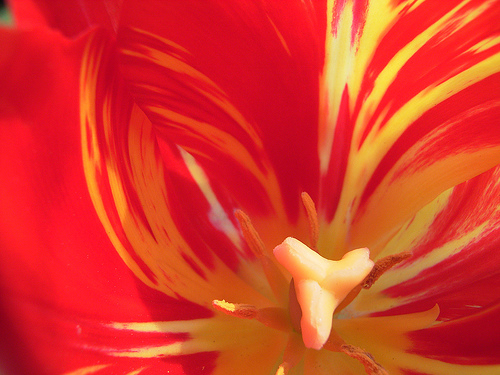
Wiki / Verletzlichkeit
Inhaltsverzeichnis: (verbergen)
 Quellende Weißeritz |
Verletzlichkeit: sich unsicher fühlen, ein Risiko eingehen, sich emotional bloßstellen, auf Unterstützung angewiesen zu sein
Vulnerability: uncertainty, risk, emotional exposure, subject to a support system
|
| Quelle (engl.): ► Gelöschter Blogeintrag The ten things that make us vulnerable [Zehn selbstschädigende Einstellungen], präsentiert von Matthieu Ricard (*1946) französischer Molekularbiologe, buddhistischer Mönch, Fotograf, Autor, 28. Mai 2012 |
| See also: ► Behavioural patterns that make one vulnerable – Matthieu Ricard |
| Wenn das Böse dir gegenüber steht, dann schau ihm fest ins Auge. Schaue solange hin, bis du im Spiegel der Augen deines Feindes dein eigenes Böses erkennen kannst. Und dann ziehe dich zurück. Und schaue deinem eigenen Bösen fest ins Auge. Schaue solange hin, bis du hinter ihm dein verletztes Gutes erkennen kannst. Dann schließe sie beide, das verletzte Gute und das verteidigende Böse so fest in die Arme deines Herzens wie du kannst und kümmere dich nicht um den Feind. Danke ihm im Stillen und lass ihn seine Wege gehen. Sie werden die deinen nicht mehr kreuzen. Solange du jedoch im Bewusstsein deines Rechts verharrst, wird dein Feind dein Feind bleiben. |
| Quelle: ► Safi Nidiaye (*1951) deutsche Meditationslehrerin, Zeitschriften- und Fernsehjournalistin, Dichterin, Schriftstellerin, Die Stimme des Herzens. Der Weg zum größten aller Geheimnisse, Bastei Lübbe, 9. Auflage 25. April 2000 |
| Siehe auch: ► Negativität und ► Spiegel |
Empfehlung

Arno Gruen (1923-2015) deutsch-schweizerischer Psychologe, Psychoanalytiker, Zivilisationskritiker, Schriftsteller, Der Verrat am Selbst. Die Angst vor Autonomie bei Mann und Frau, 1986, Deutscher Taschenbuch Verlag (dtv), Neuauflage 1. Januar 1992
Literaturzitat
Filmzitat
Gedicht
Angriff aus feinstoffliche Ebenen
Personal avowals
Recommendations

Appeals
Conclusion
Insights
See also: Peaceful Warrior – The journey (Words of Wisdom), YouTube film, 3:44 minutes duration, posted 11. Juli 2009
|
Cartoon To Love at All, presented by the blogspot patheos.com, James Ford, 15. October 2013
|
Poetry
Movie quote
In cruel societies missing out on human dignity vulnerability is seen as weakness, imperfection is seen as inadequacy. Many humans buy into the idea to be "less than", not worthy of belonging.

[Partially paraphrased]
| See also: ► Empathy: Quotes by Brené Brown and ► Shame: Quotes by Brené Brown |
| Siehe auch: ► Zitate über Scham – Brené Brown |
Recontextualizing the human condition expressed as inconsiderate behavior
"Justified resentments"
|
| Source: ► Removed blog entry The ten things that make us vulnerable, presented by Matthieu Ricard (*1946) French molecular biologist, Buddhist monk, photographer, author, 28. May 2012 |
| Siehe auch: ► Selbstschädigende Einstellungen und Verhaltensmuster – Matthieu Ricard |
| ||||||||||||||||||||||||||||||||||||
| Originator: ► Kent Keith, 1968 |
| See also: ► Let's see and ► Paradox |
| Note: ► Mother Teresa changed the original somewhat and had it engraved at the wall of her children home in Calcutta, India. Since then the poem has been adjudged. |

Links zum Thema Verletzlichkeit / VulnerabilityLiteratur
Literature (engl.)
"Click accelerators" are: vulnerability, proximity, flow, similarity, environment, engagement, a little magic
Externe Weblinks
External web links (engl.)
Audio- und Videolinks
Audio and video links (engl.)
Research indicates that guilt (linked with empathy) is the more adaptive emotion as it can motivate people to behave in a moral, caring, socially responsible manner. Shame (about the self) (linked with aggression) can easily go awry.
Letting go of grudges
Audio and video links (engl.) – Brené BrownAudios and videos featuring Brené Brown, Ph.D., LMSW (*1965) US American shame, vulnerability, empathy researcher, Graduate College of Social Work, University of Houston, public speaker, author
| |||||||||||||||||||||||||||||||||||||||||||||||||
Englisch Wiki
Hawkins